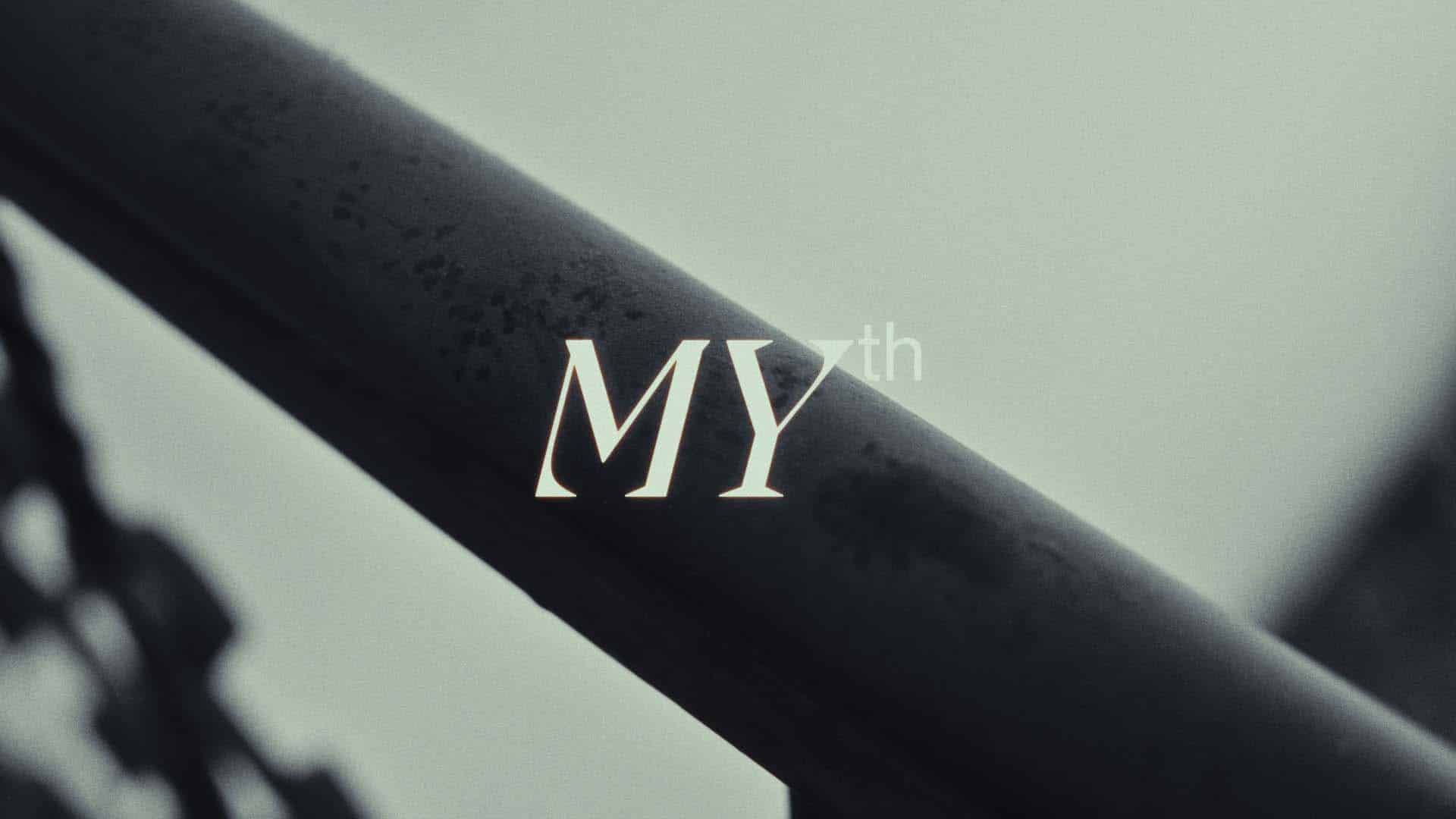
myths about what it takes to be a writer
Recently, in a bout of existential crises (🎡), I wondered to myself – what does it take to be a good, or even great, writer. The answer? A lot, and also very little. Allow me to open your horizons to knowing more about these very accomplished writers who weren’t necessarily predictable when it came to what they would be celebrated for.
Here are 4 myths about what it takes to be an accomplished writer:
1. you need to be experienced 👴
Experience is great, sure. A necessity? No. Here are a few people who make you think twice about the prerequisite of being a seasoned writer in order to be successful.
authors
Jostein Gaarder, "Sophie’s World":
Gaarder was a school teacher and not a novelist by profession when he wrote this book. He weaved complicated concepts into a simple narrative wonderfully, despite his lack of formal training in fiction writing. His book explores the world of philosophy through the young and agile mind of a 14 year old living in Norway. One of the most notable accolades for Sophie’s World was its receipt of the Deutscher Jugendliteraturpreis (German Youth Literature Prize) in 1994. It also made it to the best seller list in several countries.
Arundhati Roy, “The God of Small Things”:
Roy’s debut novel won the Man Booker Prize for Fiction in 1997 and received widespread acclaim for its fresh and unique narrative on social issues. The book is considered a modern classic of Indian literature for many valid reasons, the most notable one being shattering deep rooted stereotypes and bigotry. Arguably, her best book was her first book. With a compelling narrative – experience becomes secondary.
Chetan Bhagat, "Five Point Someone: What Not to Do at IIT":
The basis of one of India’s most favorite movies – 3 Idiots, this book really hit the home run in one go. While this was not the most profound read, it did do an earnest job at pointing out problematic aspects of the Indian higher education system and was received well by the audiences because of how relatable it was – turning non-readers into people who could actually get through a book.
screenwriters
Aaron Sorkin, “A Few Good Men”:
Sorkin was primarily known for his work in theater before writing the screenplay for “A Few Good Men”. His background was more in stage plays, and his success in film came after this adaptation which was nominated for 4 Academy Awards. Talk about well started!
Jordan Peele, "Get Out":
Peele was primarily known as a comedian and actor before writing and directing “Get Out”. The unique blend of horror and social commentary came almost naturally to him. He also enjoyed the glory and honor of being the first Black screenwriter to win the Academy Award for Original Screenplay.
Amitabh Bhattacharya, "Kahaani":
The gripping feminist thriller that kept every watcher at the edge of their seat came from the debut screenwriting attempt of Amitabh Bhattacharya. The film also won the Silver Lotus Award for Best Screenplay (Original) and is still considered a classic in Indian cinema.
2. you need to be able to see 👀
Sight is useful, but vision is essential. Several visually impaired writers have been successful writers and here’s the list to prove it.
authors
Helen Keller, “The Story of My Life”:
Although primarily known for her activism and autobiography, Helen Keller’s works, especially “The Story of My Life”, were written with the help of assistants. Keller, who was deafblind, used a combination of braille, sign language, and typewriting to produce her texts. But her deviances took nothing away from a compelling and honest narrative that broke boundaries of human resilience and the need to connect to share one’s own unique experiences.
James Holman, “The Narrative of a Journey Across the Desert of Arabia”:
Known as “The Blind Traveler,” Holman wrote “The Narrative of a Journey Across the Desert of Arabia” in the 19th century. Despite his blindness, he traveled extensively and documented his experiences in vivid and glorious detail. His perception gave a new dimension to the way of storytelling and opened literary minds to new possibilities.
Haben Girma, “Haben: The Deafblind Woman Who Conquered Harvard Law”:
A disability rights advocate and author, Girma, who is deafblind, wrote her memoir “Haben: The Deafblind Woman Who Conquered Harvard Law”. Her writing work was a huge success and has inspired many essential conversations about how we view the physically challenged. Her various speaking engagements have brought attention to accessibility and representation for people with disabilities in various media, including film and television.
screenwriters
Ryan Knighton, “Cockeyed”:
The extraordinary Ryan Knighton often says how being blind has served him well as a writer for the screen, especially as he pitches his work and can not see people’s reaction. He believes it allows him to feel more authentic about his script and communicate it better. He can also explain scenes in great detail that help people visualize what he has in mind. His script, Cockeyed, was being talked about in late 2021 of being adapted as a feature film that Rayan Renolds would produce, while his network drama, ‘In The Dark’ is already out there. He has also written for Universal Studios, Paramount Studios, 20th Century Fox and has created several pilots for FX.
Tarris Marie, “Blaque Pearle”:
When Tarris Marie was declared legally blind after working for 15 years in Corporate America, she lost her job. Heartbroken, jobless and in the thick of Covid, she found herself depressed and looking for a ray of hope. She often says in her interviews that God told her to get up and start writing, and she hasn’t stopped since. Her book, Blaque Pearle, received a lot of positive reviews for its boldness and fresh narration. Marie’s debut novel tells the story of an aspiring actress from Compton named Pearle Monalise Brown who resorts to her beauty and acting skills to swindle money and expensive jewels. She meets a handsome gentleman named Blaque, and together they become passionately entangled in a whirlwind romance as they try to outsmart their enemies. She is now adapting this novel as a screenplay and we certainly hope to see it grace our theaters in the near future.
3. you need perfect command of the alphabet ✔️
While being able to write is a great attribute to have while aspiring to be a writer, it is most certainly not vital. Several well known and respected writers have been open about being dyslexic, and yet have accomplished their dreams of being acclaimed individuals in their profession. Here are some of them:
authors
Agatha Christie:
The renowned mystery writer had to deal with many difficulties as a child when it came to reading and writing. She would find out only much later that it was actually dyslexia. None of that stopped her from being a flamboyant and gripping author as she topped the charts with bestseller after bestseller – And Then There Were None, Murder on the Orient Express, N or M and Sleeping Murder being only a few of them. Christie is known for her ability to turn mundane details, people and places into vibrant, authoritative, page-turning dramas with unexpected revelations. All her novels feature complexity as a barely controlled essence, an intricate puzzle that unravels to become a printed, organized way of stimulating senses, while triggering curiosity, annoyance and excitement, all while not even having the actual tool of being able to
Stephen King:
Prolific and exciting, King is royalty in the horror genre. He has spoken many times about his struggles with dyslexia and how it crushed his confidence in his early life. However, upon reading his mind and reality bending books, one could never imagine his shortcoming. The Stand, IT and The Shining have been my favorite books while growing up, and they are page turners to say the least. He writes with a lot of freedom and his themes are all his best friends. He always writes in third person, alternating between time periods and often breaks rules of writing with nonchalance, all while not perfectly knowing how to write.
Ankur Warikoo:
“Get Epic Shit Done” graces the tables of many these days, and the writer of this very tongue and cheek bestseller is dyslexic. While primarily known as an entrepreneur and motivational speaker, Warikoo has written about his personal experiences, including his struggle with dyslexia.
screenwriters
Rajkumar Hirani:
The director and co-writer of critically acclaimed films like Munnabhai M.B.B.S, 3 Idiots and PK has been open about his struggles with dyslexia. But we’ll all agree that Hirani has been a more than proficient story-teller and has given us wonderful movies that are considered timeless.
Kelly Schwarze:
If you like the movies Abigail Haunting, Alien Domicile and Darkest of Lies; you have Kelly Schwarze to thank who also happens to be dyslexic. He speaks in one of his interviews of ‘thinking in pictures’ rather than words and his success affirms that whatever he lacks, he more than covers up in creativity and has worked wonders through his career as a film creator and screenplay writer.
4. you need to be alive 🪦
Turns out that you can leave the planet and even then gain importance as a writer! Morbid, but true. Many authors and screenwriters have received acclaim posthumously. Here are some well-known examples.
authors
Emily Dickinson (1830 to 1886):
The themes of death and immortality were uncommon in Dickinson’s time which is why all of her work was heavily edited before being published. She usually preferred isolation, even before she became critically ill. After her demise, her sister, Lavinia, discovered her cache of poems. She was the one who publicized her sister’s poetry which received worldwide recognition in the years that followed and is still considered a literature treasure.
John Kennedy Toole (1937 to 1969):
John Kennedy Toole wrote a book using comedy as a tool to draw the reader into the narrative armed with his unique flair in writing a really good satire, however it never saw the light of day while he was around. Thanks to his mother’s efforts, Toole’s novel “A Confederacy of Dunces” was published posthumously in 1980. It won the Pulitzer Prize for Fiction in 1981 and has since become a classic of American literature.
screenwriters
Edmund H. North:
The Day the Earth Stood Still (1951) was an original screenplay written by Edmund H. North. Unfortunately, he passed on before the film’s release and was not able to witness the film become a classic of the science fiction genre. The film has a dedicated fan base till date!
Walter Hill:
“The Original Sin” (2001) was written by the late Walter Hill. The film was completed and released after Hill’s death, and it has become part of his enduring and profound legacy. The film gained immense popularity because of its bold story, even though the editing was criticized as mundane and sexist.
Akhtar Romani:
“Chupke Chupke” (1975), written by the legendary writer Akhtar Romani, was completed and released after his death. The film was a success for its humor and unique storyline. Romani’s screenplay contributed to the film’s success and is considered one of the good ol’ classics.
This piece has been cathartic to write and I hope it has opened your mind to the endless possibilities that this life has to offer, and even beyond that, who knows?! A passion for whatever it is that you commit to will always shine through. To write, to create, to discover or to simplify – whatever it is that you want to do, can most certainly be done – and history proves it. Who has been your inspiration, and why? We’d love to know, because this list is endless, as it should be. ♾️
share



